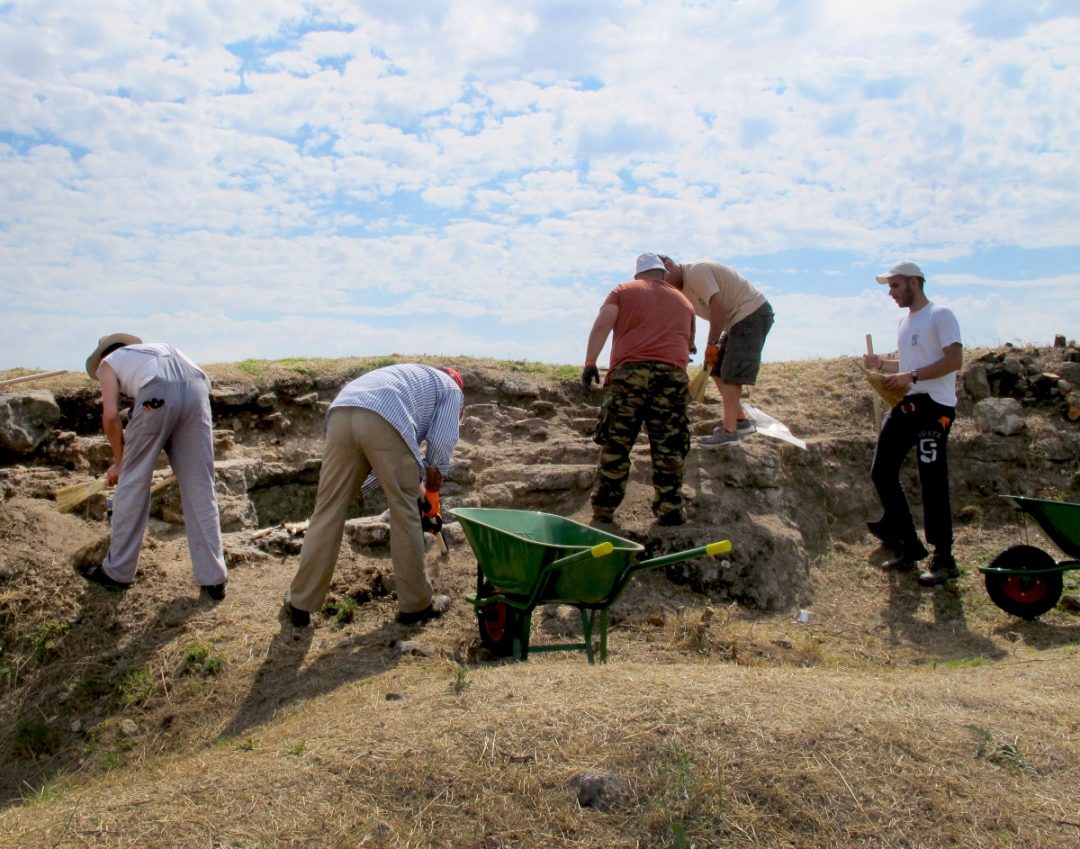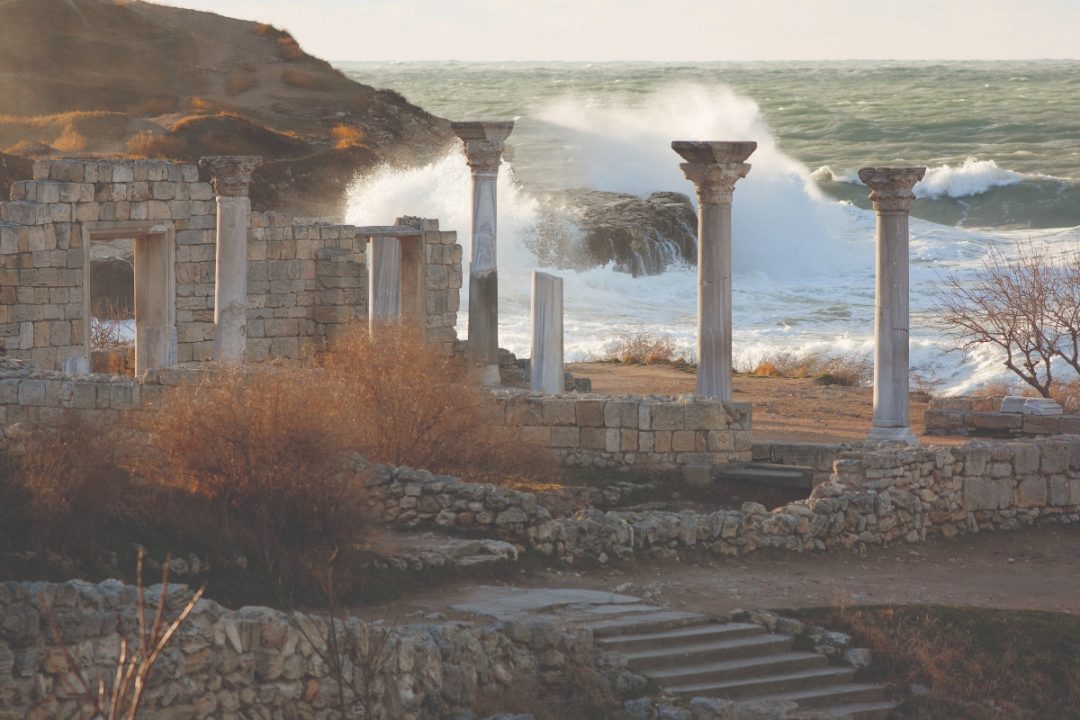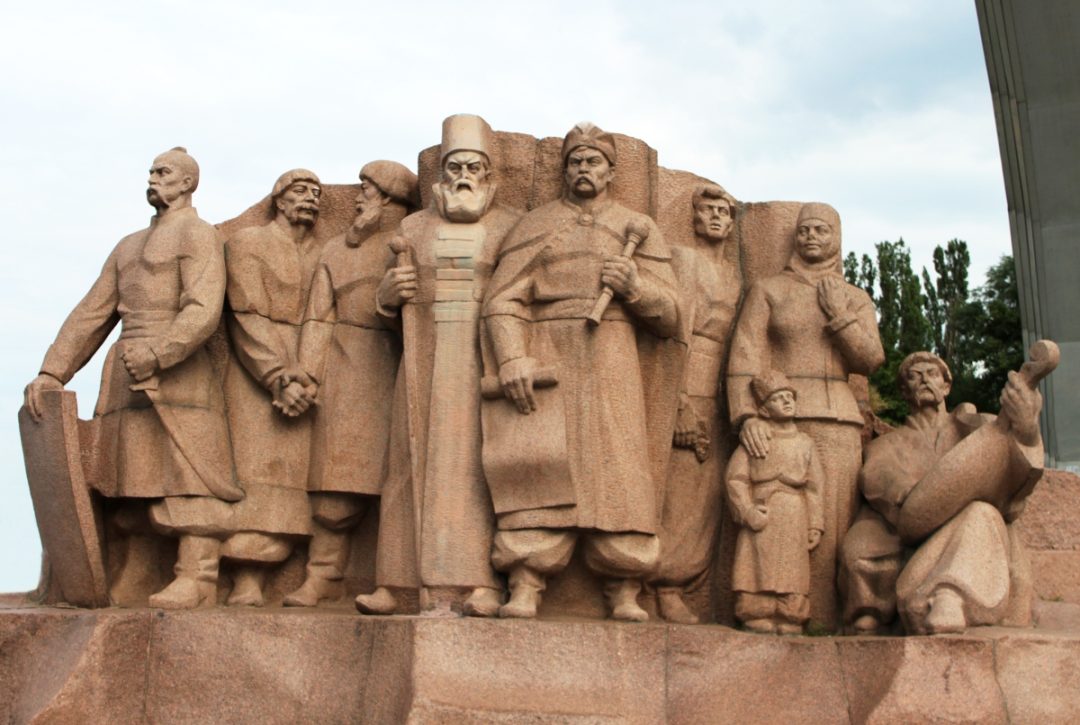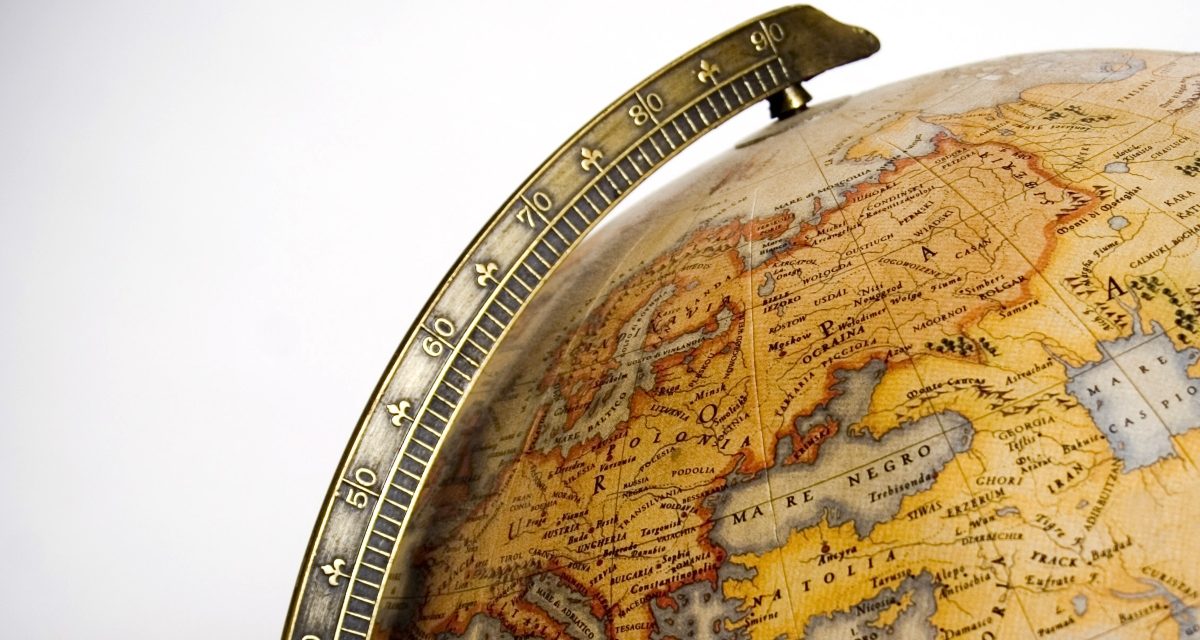The web portal Study in Greece is campaigning for the promotion and international visibility of Greek Universities and the comparative educational advantages of our country. In particular, the campaign focuses on the foreign language study programs that Greek Universities offer to Greek and international students. The initiative is supported by the General Secretariat of Higher Education of the Ministry of Education and Religious Affairs and the General Secretariat for Greeks Abroad and Public Diplomacy of the Ministry for Foreign Affairs. In this context, a number of educational programs and actions are presented in detail on a regular basis, such as undergraduate and postgraduate programs, summer schools etc, to inform international students about the many foreign language options offered by Greek Universities.

Study in Greece interviewed Professor Manolis Manoledakis, Director of the MA in Black Sea and Eastern Mediterranean Studies: Culture and International Relations offered at the International Hellenic University (ΙΗU) about the program, its features and what it has to offer to international students.
Manolis Manoledakis is Professor of Classical Archaeology at the International Hellenic University in Thessaloniki. He is also the Dean of the School of Humanities, Social Sciences and Economics. He has also taught at the University of Ioannina, the Democritus University of Thrace and the Hellenic Open University. He has participated in various research programs and is the director of the International Hellenic University’s excavation in Neo Rysio, Thessaloniki. He is also the creator and director of two post-graduate programs offered by the International Hellenic University, the MA in Black Sea and Eastern Mediterranean Studies and the MA in the Classical Archaeology and the Ancient History of Macedonia.
Mr Manoledakis, please tell us about the MA in Black Sea and Eastern Mediterranean Studies: Culture and International Relations offered by the International Hellenic University – its main teaching objectives and its scientific content.
The MA Program in Black Sea and Eastern Mediterranean Studies: Culture and International Relations is based on an interdisciplinary approach to the study of the history and culture of the Black Sea and the Eastern Mediterranean regions. The study and interpretation of the historical and cultural data of these regions, areas of great geopolitical and economic importance, provides the students with an outstanding opportunity to specialize in a research domain of such significance in our times.
Without doubt, both regions constitute two great international gateways of considerable significance for Europe as well as for Asia and the East. Over the last few decades, research institutions and university departments all over the world have promoted research programs concentrating on these regions with such rich scientific material.
With its two streams on “Archaeology and Cultures” and “International Relations and History”, the MA in “Black Sea and Eastern Mediterranean Studies: Culture and International Relations” provides specialized education in diverse areas of interest such as Archaeology, Ethnography, Historical Geography, Art, Religion, Mythology, History, International Relations, Politics and Diplomacy. The program promotes learning and teaching characterized by a diversity of teaching methods. The courses are taught exclusively in English. The academics teaching on the program come from universities both abroad and in Greece.

Please analyze the reasons why an international student should choose this program in Greece to obtain a Master’s degree in this specialized field, taking into account that the application period is now open and that the program is only offered in English.
Contrary to what was the case with the Eastern Mediterranean, there has never been a university program dedicated to the Black Sea, despite its growing importance over the last three decades. Our postgraduate program, launched in 2010, became the first such program worldwide, which examined the Black Sea – and later also the Eastern Mediterranean – in an interdisciplinary way, as well as from antiquity until nowadays. It is interesting to observe that, thirteen years after its creation, this program remains the only one in the world with such a subject.
Greece happens to be situated at a crucial geographical position that links the Eastern Mediterranean with the Black Sea, in which it has always played a significant role in terms of both culture and geopolitics. It sent colonists to these areas in antiquity and has been receiving immigrants from there over the last century. Especially Thessaloniki, where our University is situated, is known to stand out as a multi-cultural city in the wider area over the last centuries. Let me highlight the fact that the specific program is taught in English, which makes it accessible to all international students.
With their unique geological and cultural qualities, the Black Sea region and the Eastern Mediterranean basin are becoming particularly significant as geopolitical linkages between Europe and Asia; tell us more about this geopolitical field of interest.
Indeed, both the Black Sea region and the Eastern Mediterranean display a particular geopolitical significance. The important natural resources and the crucial position of these regions at the hub of international routes have always aroused the interest of many nations over the ages, leading to numerous events of great cultural and historical importance. But especially after the end of the Cold War, the Black Sea emerged as the most important link between Europe and Asia, in terms of geopolitics, economy, etc. This is something that everybody has been able to observe during the last three decades.
Moreover, we should note that, apart from geopolitics and economy, the Black Sea and Eastern Mediterranean present utterly significant cultural characteristics as well, since they constitute areas that hosted many of the most important and influential cultures of the world, the impact of which is still decisive. Therefore, it was inevitable that these regions would give rise to a scientific interest in them as well. Nevertheless, contrary to the Eastern Mediterranean, the Black Sea area started enjoying this interest only after the 1990s, for reasons that again are mainly of political nature.

What opportunities will this program provide students in terms of both their education and careers?
The program offers a critical and multifarious study of the Black Sea and Eastern Mediterranean regions, from ancient history and archaeology to contemporary art and modern politics and economy. It is focused on the exclusive promotion of scientific research and knowledge. It encourages the development of inter-religious and inter-cultural relations between different societies of the Balkans, Eastern Europe, the Black Sea and Eastern Mediterranean region in order to promote international communication and understanding. In this context the program will hopefully provide the specialized personnel, properly equipped with scientific knowledge and well-informed, suitable to enhance cooperation among the countries of the South-eastern Europe and the Eastern Mediterranean basin.
Each course of this program enables the students to develop a historical, political and economic perspective on Black Sea and Eastern Mediterranean reality. The graduates obtain specialized and thorough knowledge on the wider Black Sea and Eastern Mediterranean region related to:
• the development and diversity of relations between the peoples of the region from antiquity until nowadays, based on data from History, Archaeology, Mythology, Art, Monumental Topography and Historical Geography
• modern and contemporary activity in the arts, orientated towards subjects of representational and non-representational art and architecture, in a comparative perspective
• issues of minorities, immigrations, close proximity, human rights and security, cultural relations and communication between countries during the post-soviet era or since the emergence of the political Islam
• the contemporary political situation within the framework first of the theoretical background of international relations and, second, of the comparative study with European and Asian countries
• business activity, the investment environment and economy of the Black Sea and Eastern Mediterranean countries, through the study of data and comparison with other economies.
These skills will allow our graduates to work in Educational Institutions and Academies concentrating on Black Sea and the Eastern Mediterranean regions, Archaeological Departments and Research Institutes, Museums as well as the Diplomatic Corps or other state Services, Corporations or NGOs, which have interests in the Black Sea and the Eastern Mediterranean.

In terms of extroversion, how, in your opinion, may Greece -and the International Hellenic University in particular- attract more foreign students?
There is no doubt that, in order to achieve extroversion and attract more international students, Greek universities have to offer more English-speaking programs, dedicated on crucial scientific fields. The International Hellenic University, established in 2005, has been the first Greek university offering programs exclusively in English and I believe that the specific post-graduate program in the Black Sea and Eastern Mediterranean Studies is a good example of how Greece could attract more international students taking advantage of its geographical position and culture.
Describe the history, developments, and accomplishments of the School of Humanities, Social Sciences, and Economics at the University Centre of International Programs of Studies of the International Hellenic University.
The School of Humanities, Social Sciences and Economics is one of the two Schools of the University Centre of International Programs of Studies (UCIPS) of the International Hellenic University. It strives to provide an inspirational academic environment and leading education, building on excellence and an interdisciplinary approach. The School consists of the Department of Humanities, Social Sciences and Economics, which offers twelve Postgraduate programs on several scientific areas, such as humanities, economics and business administration, legal studies, as well as biological fields in relation to business and law.
Some of them were the first exclusively English-speaking programs that appeared in Greece, fifteen years ago. Since then, our School, as well as the UCIPS in general, has made many steps to develop as foremost research institution of Europe and has already attracted a strong international academic faculty and outstanding students from countries as diverse as Albania, Armenia, Austria, Azerbaijan, Belgium, Bulgaria, Cameroon, Canada, Chile, Cyprus, France, Georgia, German, Greece, Holland, India, Italy, Kazakhstan, Libya, Lithuania, Malta, Mexico, Moldova, North Macedonia, New Zealand, Portugal, Romania, Russia, Slovakia, Slovenia, South Africa, Spain, Sweden, Turkey, UK, the USA and more.
This is achieved, among others, through the creation of programs on crucial academic fields, high-quality PhD programs, permanent research projects, such as the archaeological excavation of the University outside Thessaloniki, where the students of this MA interested in archaeology are also practiced, as well as participations in many significant research programs. The external evaluation of our postgraduate programs that took place some years ago offered to them the highest grade, highlighting our institution as worthy of merit. I think that all these factors should also be considered by international students that would like to continue their studies in Greece.
Application deadline: 30 September 2023 or until places are filled
TAGS: EDUCATION














